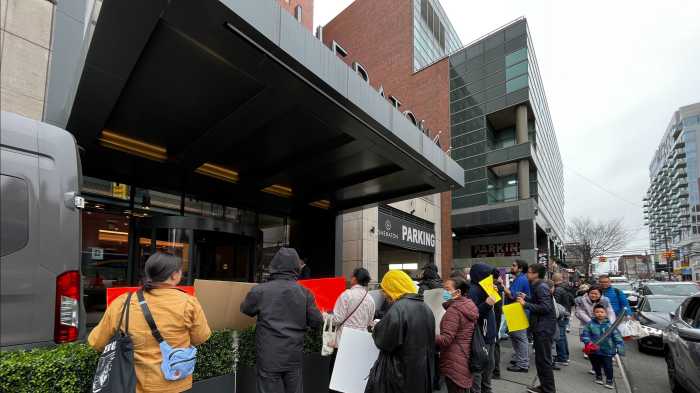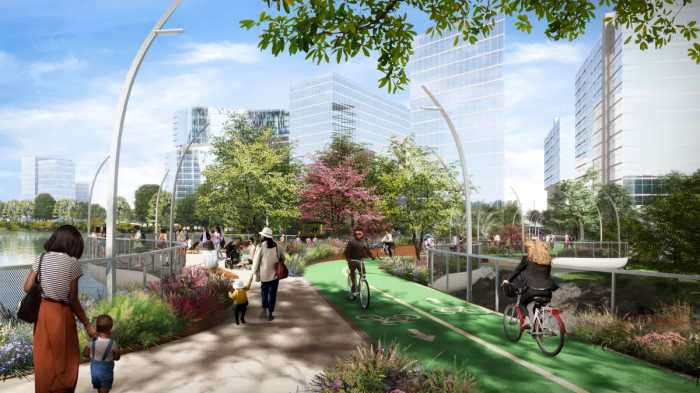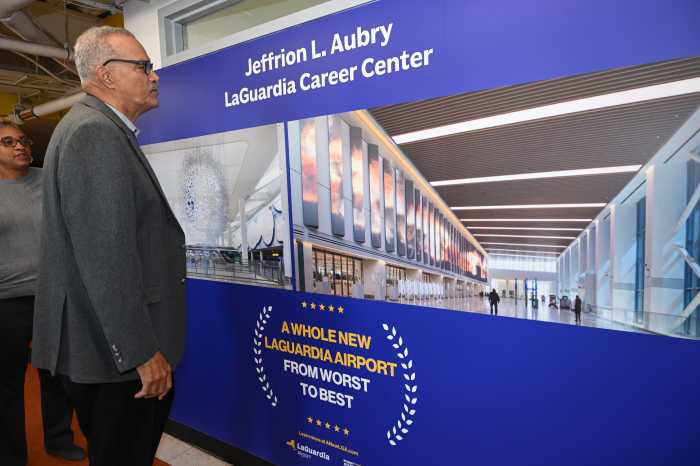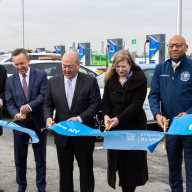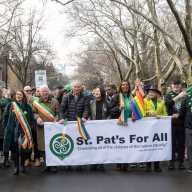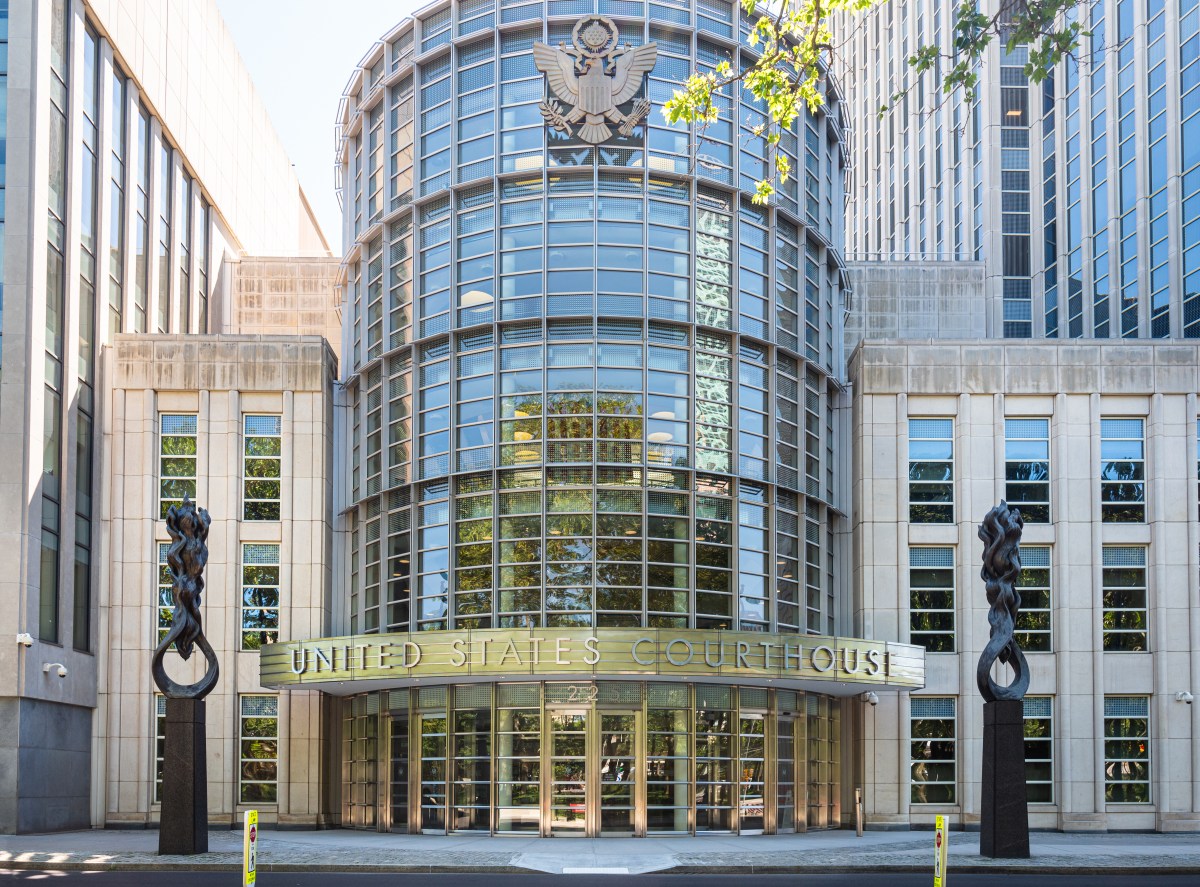The New York State Senate has voted overwhelmingly in favor of legislation that would allow Mets owner Steve Cohen and Hard Rock International to transform 50 acres of Citi Field parking lot into Metropolitan Park, an $8 billion entertainment complex anchored by a casino.
On Tuesday, lawmakers voted 54-5 in favor of a parkland alienation bill that would reclassify the parking lot—currently designated as public parkland—into commercial property. The reclassification represents a critical step toward advancing the ambitious development proposal, which sits adjacent to Citi Field in Queens.
The legislation, introduced by State Sen. John Liu at the beginning of April, was narrowly passed by the Senate’s Committee on Cities last month despite none of the seven-member committee voting outright in favor of the bill. A total of four committee members voted to advance the bill without recommendation, while three committee members voted against.
Queens officials Jessica Ramos and Joseph P. Addabbo voted against the legislation during Tuesday’s vote, joining State Senators Jabari Brisport, Liz Krueger and Cordell Cleare.
Earlier in May, the State Assembly voted 134-11 in favor of companion legislation introduced by Assembly Member Larinda Hooks.
Plans for Metropolitan Park include a 25-acre public park, new shops and restaurants, a Taste of Queens food hall, and a full-scale redevelopment of the Mets-Willets Point subway station, along with improvements to roads and bike paths. The proposal also features a Hard Rock resort and casino, a key revenue-generating component of the project.
According to the development team, the project is expected to generate 23,000 union jobs and deliver $1 billion in community benefits for Queens.
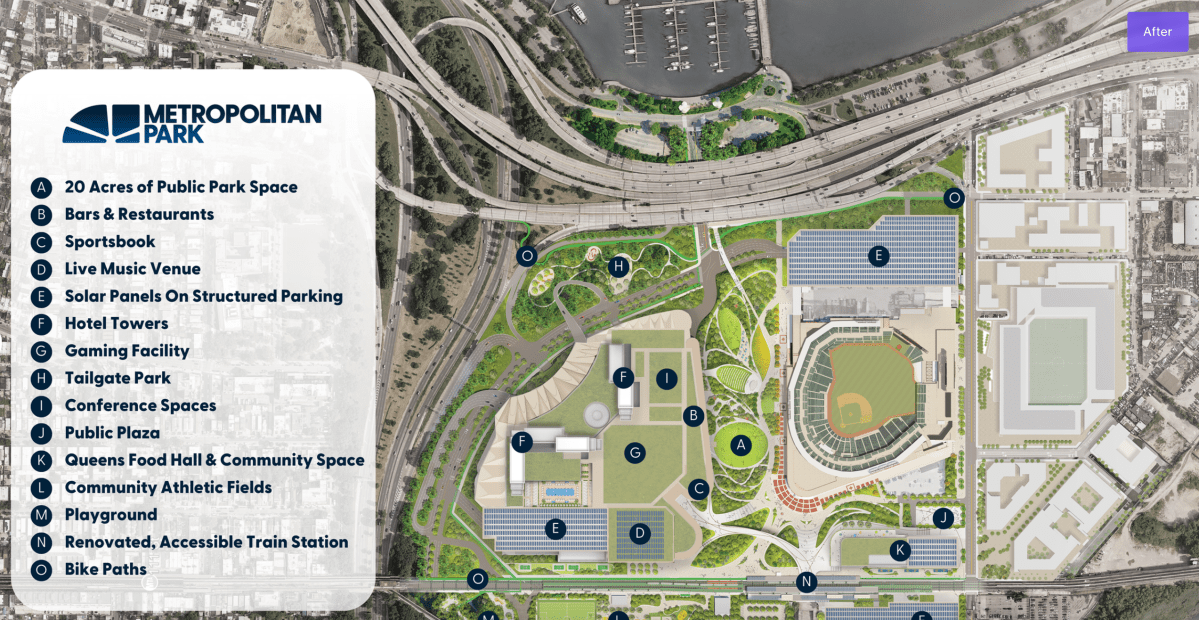
Although the proposed development area is an asphalt parking lot, it is legally designated as city parkland, meaning the city needed to approve zoning text and city map amendments before the project could proceed. The state legislature also needed to approve a parkland alienation bill reclassifying the 50-acre site as commercial property if the project is to be successful.
The New York City Council previously voted 41-2 in favor of the related land use amendments in March as part of the city’s Uniform Land Use Review Procedure (ULURP).
The overwhelming approval of parkland alienation legislation in both houses of the state legislature brings the project even closer to reality. The bill now goes to Gov. Kathy Hochul to be signed into law.
However, approval from both the legislature and City Council does not guarantee that the development will proceed on the Citi Field-adjacent site, as the project still faces additional hurdles, including the state’s casino licensing process and community review.
The $8 billion Metropolitan Park proposal hinges on the project winning one of the three downstate casino licenses approved by state legislators. The New York State Gaming Commission will decide who receives the three licenses.
Two of the three downstate licenses are expected to be handed to existing “racinos,” which have slot machines and horse racing but no traditional casino table games, making competition for the final gaming license fierce. Other projects vying for a downstate casino license have outlined proposals at Times Square, Hudson Yards, the United Nations, Coney Island, and the former Trump Links golf course in the Bronx, among other locations.
Representatives of the Metropolitan Park project have previously stated that the development will not proceed unless it wins one of the three downstate licenses.
State officials are expected to award downstate gaming licenses to the three successful projects by the end of 2025.
Liu welcomed the State Senate’s vote on Tuesday, stating that it allows the Metropolitan Park proposal to be considered by the State Gaming Commission.
“The proposal would create thousands of jobs for local residents and opportunities for local small businesses, and provide over a billion dollars in transit, park, and other infrastructure improvements,” Liu said in a statement.
Hooks, meanwhile, said the legislature’s approval of the parkland alienation bill brings the community a “step closer” to transforming a 50-acre asphalt parking lot into a “historic destination.” Hooks added that the space had previously stood as a “barrier” to the area’s progress.
“This is our chance to build opportunity, create jobs, and pave the way for a prosperous future,” Hooks said in a statement.
Cohen said the State Senate’s vote is the result of years of community engagement and thousands of conversations, stating that the vote takes the development “one step closer to transforming these asphalt lots into something our neighbors can truly be proud of.”
“This is just the start, and we are committed to working closely with the community and fans every step of the way,” Cohen said in a statement.
Hard Rock International CEO Jim Allen said Metropolitan Park will become a global destination and a local hub for entertainment and food if the project is successful in its bid for one of the three downstate licenses.
“This project was inspired by the community, shaped through their input, and designed with their future in mind, and we look forward to bringing it to life together,” Allen said.
Metropolitan Park officials contended that the proposed development is the only downstate casino project to undergo a “rigorous” state and city review process due to the site’s designation as a city parkland.
Ramos, who represents the area covered by the Metropolitan Park proposal, consistently refused to introduce the necessary parkland alienation legislation for the proposal. Ramos has not yet responded to a request for comment but cited concerns about a proposed casino, stating on Twitter that the community does not want a casino “in our backyard.”


